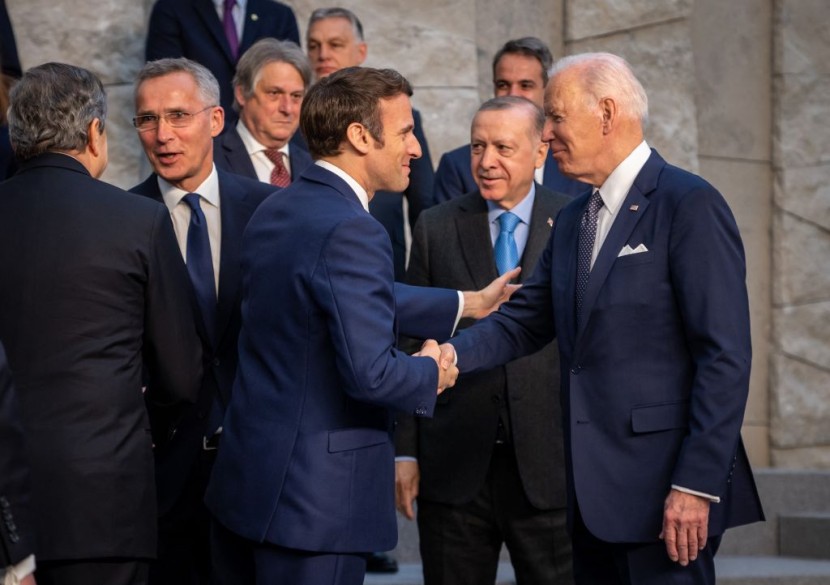
NATO Secretary-General Jens Stoltenberg, any chemical strike by Russia on Ukraine will alter the direction of the war, however, there are still no signs whether the alliance would respond militarily.
When asked if a chemical constitutes a red line for the alliance, Stoltenberg responded that "NATO is always ready to defend, protect, and react to any form of attack" on a member country. He added that "any use of chemical weapons would fundamentally change the nature of the conflict."
"It would be a blatant violation of international law, and it will have widespread and severe consequences," Stoltenberg said.
His words came as he arrived at NATO headquarters in Brussels on Thursday to preside over a meeting of the military organization's 30 state leaders, including US President Joe Biden, Star Tribune reports.
NATO members are concerned about Russian rhetoric, fearing that Moscow could produce a pretext to justify the use of chemical weapons in Ukraine.
Hence, the leaders are inclined to deal to provide equipment to assist Ukraine in defending itself against chemical, biological, radiological, and nuclear weapons.
They're also expected to back a plan to establish four new multinational battlegroups in eastern Europe to dissuade Russia from assaulting NATO member countries.
UK, Belgium Prime Ministers Blast Putin
However, British Prime Minister Boris Johnson says Russia has already gone beyond the limits amid the refusal of NATO leaders to rule out retaliation against Moscow if it uses chemical weapons in its attacks on Ukraine.
CNBC reported that upon his arrival for the NATO leaders' summit, Johnson told members of the media that Russian President Vladimir Putin "has already crossed the red line into barbarism."
Johnson emphasized that NATO should now consider "the appalling crisis in Ukraine" and its citizens and explore the other possibilities "to help the people of Ukraine to protect themselves."NATO, as an organization, does not provide weapons to Ukraine.
Despite the continued bombardment of Russian forces in the Eastern European country, the alliance of 30 nations declared that it would not deploy troops and military aircraft to Ukraine to stop the invasion.
NATO also announced that it would not implement any no-fly zone. However, separately or jointly, member countries provide weaponry and other aid to the war-torn country.
Belgian Prime Minister Alexander De Croo says Putin is a Russian head of state "who has lost any sense of what is reasonable" at present.
He also warned that if Moscow's troops use chemical weapons, it will be dealt with "grave consequences."Though, the meaning of De Croo's pronouncement has to be elaborated yet by NATO.
Ukraine Warns of Possible Chemical Weapons Attacks by Russia
Ukrainian President Volodymyr Zelensky warned on Wednesday that Russia was planning a chemical-weapons attack on Ukraine. Speaking to Japan's parliament virtually, Zelensky claimed that he had received information that "Russia is preparing attacks using chemical weapons such as sarin," as per Newsweek report.
Sarin is a human-made nerve agent that was originally produced as a pesticide, according to the Centers for Disease Control and Prevention (CDC). Sarin was used in the 1995 attack on a Tokyo subway system by members of a Japanese cult, which resulted in 14 deaths.
Zelensky's remarks on chemical weapons came days after US President Joe Biden said that Putin is considering using chemical and biological weapons against Ukraine.
Related Article : Volodymyr Zelensky Net Worth 2022: How Wealthy Is the Ukraine President?
© 2025 HNGN, All rights reserved. Do not reproduce without permission.








